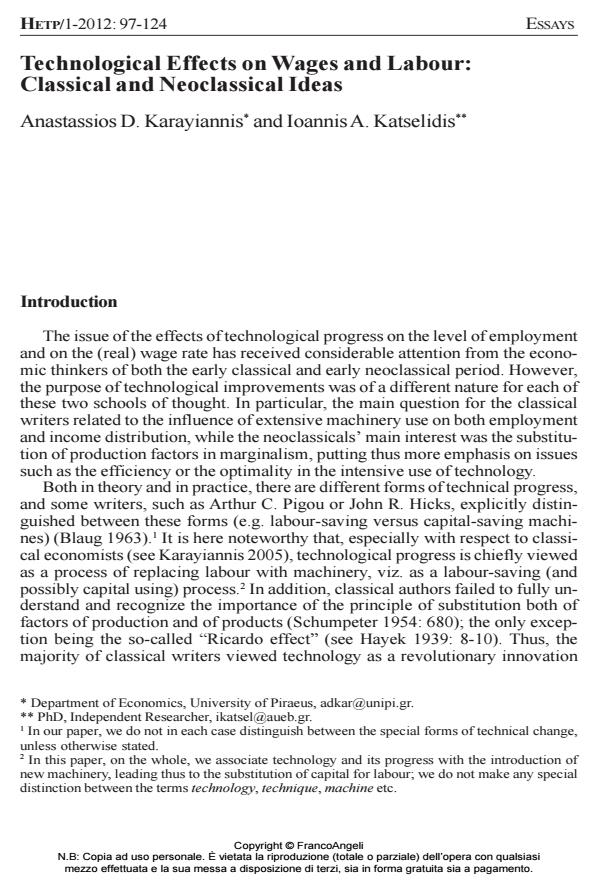Technological Effects on Wages and Labour: Classical and Neoclassical Ideas
Titolo Rivista HISTORY OF ECONOMIC THOUGHT AND POLICY
Autori/Curatori Anastassios D. Karayiannis, Ioannis A. Katselidis
Anno di pubblicazione 2012 Fascicolo 2012/1
Lingua Inglese Numero pagine 28 P. 97-124 Dimensione file 144 KB
DOI 10.3280/SPE2012-001007
Il DOI è il codice a barre della proprietà intellettuale: per saperne di più
clicca qui
Qui sotto puoi vedere in anteprima la prima pagina di questo articolo.
Se questo articolo ti interessa, lo puoi acquistare (e scaricare in formato pdf) seguendo le facili indicazioni per acquistare il download credit. Acquista Download Credits per scaricare questo Articolo in formato PDF

FrancoAngeli è membro della Publishers International Linking Association, Inc (PILA), associazione indipendente e non profit per facilitare (attraverso i servizi tecnologici implementati da CrossRef.org) l’accesso degli studiosi ai contenuti digitali nelle pubblicazioni professionali e scientifiche.
The introduction of new technology may have significant effects on the level of employment and the real wage rate; effects that have received considerable attention even from the economic thinkers of the classical period. This paper aims to analyze and evaluate the various views and arguments of early classical and neoclassical economists concerning the technological effects on wages and employment. On the one hand, the economists of the early decades of the 19th century (mainly between 1800 and 1840) had recognized and analyzed many of the effects of technology on labourers’ welfare. On the other hand, early neoclassical theorists of the period between 1890 and 1935 tried to expand on the classical views and to develop their own theoretical arguments, based on new perceptions like the marginal productivity theory. The main conclusion drawn is that most of early classical and neoclassical economists recognized and specified the temporary adverse effects of new technology on labour (e.g. short-run unemployment), but, at the same time, they argued for the beneficial long-run consequences of technological progress on labourers’ welfare.
Parole chiave:Technological Change, Labour Welfare, Classical Thought, Neoclassical Thought
Jel codes:B12, B13, O30
Anastassios D. Karayiannis, Ioannis A. Katselidis, Technological Effects on Wages and Labour: Classical and Neoclassical Ideas in "HISTORY OF ECONOMIC THOUGHT AND POLICY" 1/2012, pp 97-124, DOI: 10.3280/SPE2012-001007